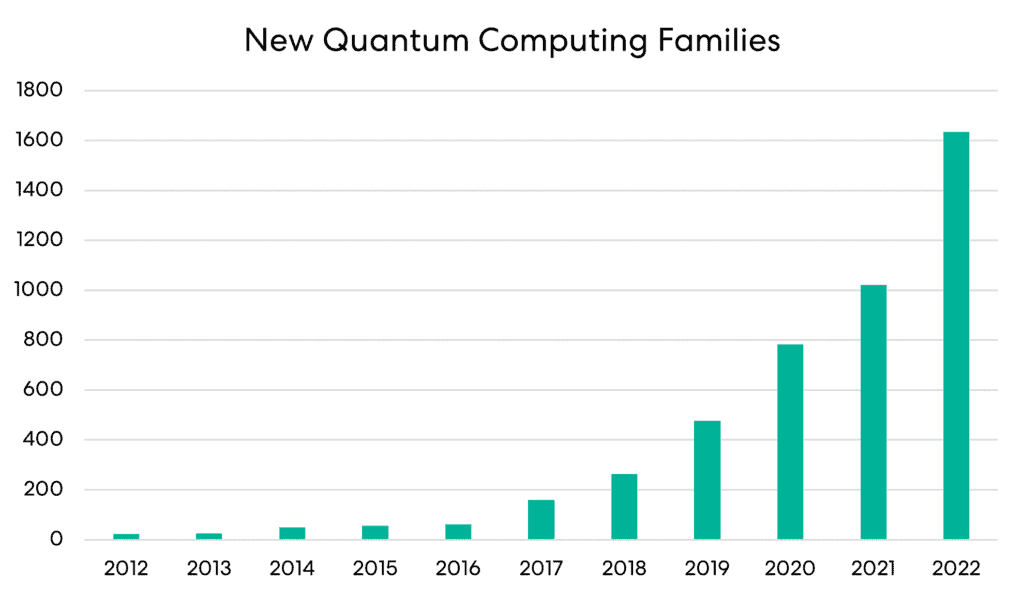Quantum Computing’s Impact on Intellectual Property Landscape

Quantum Computing’s Impact on Intellectual Property Landscape
Introduction to Quantum Computing and Intellectual Property
The intersection of quantum computing and intellectual property presents a dynamic landscape with far-reaching implications. As quantum technologies advance, the traditional paradigms governing intellectual property face both disruption and transformation. This article delves into the evolving relationship between quantum computing and intellectual property, exploring the challenges and opportunities that arise.
Quantum Computing’s Computational Advantage
Quantum computing’s immense computational power raises fundamental questions about the protection of intellectual property. Traditional encryption methods, which form the backbone of intellectual property security, are susceptible to quantum algorithms. Understanding the computational advantage of quantum systems is essential in navigating the potential vulnerabilities and safeguarding intellectual assets.
The Challenge of Quantum-Safe Encryption
As quantum computers advance, the need for quantum-safe encryption becomes paramount. Intellectual property relies heavily on secure communication and data storage. Transitioning to encryption methods resistant to quantum attacks is a crucial step in maintaining the confidentiality and integrity of sensitive intellectual property, ensuring its protection in the quantum era.
Intellectual Property in the Quantum Algorithm Space
The emergence of quantum algorithms poses intriguing challenges for intellectual property law. Innovations in quantum algorithms could lead to groundbreaking solutions, impacting various industries. Legal frameworks must adapt to address issues of patentability, ownership, and the unique challenges posed by inventions derived from quantum algorithms.
Quantum-Generated Innovations and Patent Law
Quantum computing’s potential to generate new and unconventional innovations introduces complexities for patent law. Determining patentability criteria for quantum-generated inventions requires careful consideration. Legal experts and policymakers must navigate uncharted territory to establish frameworks that balance encouraging innovation with safeguarding intellectual property rights.
Trade Secrets in the Quantum Era
Trade secrets, a critical aspect of intellectual property, face challenges in the quantum era. The enhanced computational capabilities of quantum systems may render certain encryption methods obsolete, affecting the confidentiality of trade secrets. Strategies for protecting trade secrets must evolve to address quantum-related vulnerabilities and ensure continued business competitiveness.
Collaborative Innovation and Licensing Agreements
Quantum computing often involves collaborative efforts among researchers, institutions, and corporations. Crafting effective licensing agreements becomes pivotal in this collaborative landscape. Establishing clear terms for intellectual property ownership, usage rights, and collaborative contributions is essential for fostering innovation while mitigating potential legal disputes.
Global Intellectual Property Governance
The global nature of intellectual property necessitates international cooperation in addressing quantum-related challenges. Harmonizing intellectual property governance on a global scale is essential for fostering innovation, protecting rights, and ensuring a level playing field for businesses operating in the quantum computing space. International collaborations and agreements become crucial in navigating this complex terrain.
Strategic Responses for Intellectual Property Stakeholders
Stakeholders in the intellectual property realm must adopt strategic responses to the quantum computing revolution. This involves staying informed about quantum advancements, actively participating in the evolution of legal frameworks, and investing in quantum-resistant technologies. Proactive measures enable intellectual property stakeholders to adapt and thrive in the face of quantum-related challenges.
Quantum Computing and Intellectual Property Resource
For comprehensive insights into the evolving landscape of quantum computing and intellectual property, Quantum computing and intellectual property serves as a valuable resource. This platform provides updates on legal developments, industry best practices, and strategic considerations for intellectual property stakeholders navigating the quantum era.
Conclusion: Adapting to the Quantum Era
As quantum computing reshapes the intellectual property landscape, adaptation becomes paramount. Legal frameworks, industry practices, and collaborative efforts must align to harness the potential of quantum technologies while safeguarding intellectual property rights. Navigating the quantum era requires a blend of legal acumen, technological innovation, and global cooperation to ensure a thriving intellectual property ecosystem.






